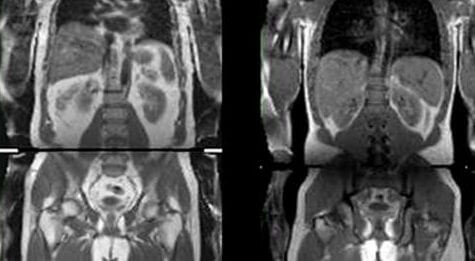Obesity is a contributor to cancer risk, but until now researchers have not fully understood why.
Scientists at Michigan State University say they now have one answer. Fat, an endocrine organ, releases a protein called fibroblast growth factor-2 that can cause normal cells to turn cancerous. And it’s deep fat, as opposed to that just under the skin, that seems most to blame. Diet and therapies to tackle the fat are now in order, the researchers say.
Said Jamie Bernard, lead author of the new study: “While there have been several advances in treating cancer and improving the quality of life of patients, the number of new cases continues to surge…. It’s important to understand the cause so we can do a better job at reducing the number of cancer cases using dietary modifications or therapeutic interventions.”
More than a third of us are obese, and the condition has been linked to cancers ranging from breast and colon to prostate, kidney and uterine. But simply recognizing that someone is overweight has been an imperfect indicator that they’re liable to get cancer. This research could help zero in on who’s most at risk.
The body has two layers of fat: Subcutaneous, or just below the skin; and visceral, the stuff inside that can surround organs. It’s that one that Bernard and team found is most harmful.
The researchers looked at mice fed a high-fat diet and found the higher-risk, visceral fat produced large amounts of the fibroblast growth factor-2, or FGF2, compared to the subcutaneous fat. And FGF2 they discovered stimulated certain cells already vulnerable to the protein to grow into tumors.
Bernard and team also gathered samples from women undergoing hysterectomies, and found that when the fat secretions had more of the FGF2 protein, more of the cells formed cancerous tumors when transplanted into mice. Said Bernard: “This would indicate that fat from both mice and humans can make a non-tumorigenic cell malignantly transform into a tumorigenic cell.
“There’s always an element of chance in whether a person will get cancer or not…. But by making smarter choices when it comes to diet and exercise and avoiding harmful habits like smoking, people can always help skew the odds in their favor.”
The team is now researching anti-cancer compounds that may be able to stop or reverse the FGF2 effects.


